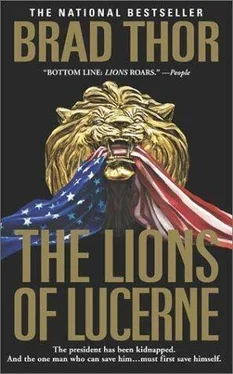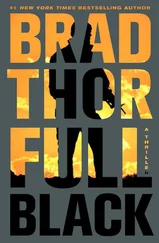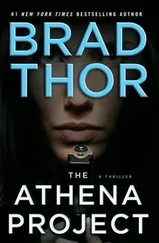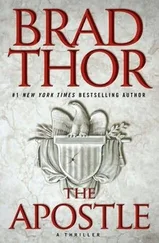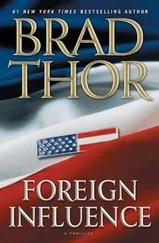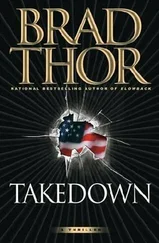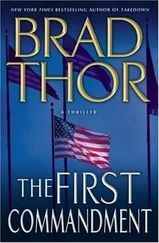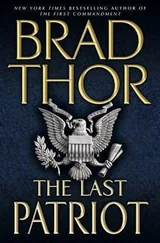As the train gently rocked back and forth along the tracks, Scot glanced out the window at the majestic, snow-covered Swiss mountains. A Swiss railway magazine hung from a small hook above the seat opposite him with a title in German and English: “The Eiger…Only for the Foolish?” Scot took down the magazine and began to skim the article. It talked about one of the country’s most daunting peaks and the attempts by teams from all over the world to conquer it.
As his eyes drifted from the photos in the glossy magazine to the Swiss countryside speeding past his window, he was positive his instincts were correct. Whoever arranged to kidnap the president had put together an incredible team of soldier mountaineers. Germany, France, Italy, and Austria could also boast men potentially up to the task, but it was the smattering of clues, hints really, that narrowed Harvath’s gut feeling down to Switzerland.
Scot still had the same question that every law enforcement officer in America had. Cui bono? It was Latin for “Who benefits?” Who would benefit from kidnapping the president? The possibilities were endless. Although all the communications received by Washington since the kidnapping seemed to point to the Fatah, Scot made up his mind to leave the Cui bono? question to the FBI and everybody back home.
Right now who benefits was not as important as who took him and where is he? Harvath had learned a long time ago to go with his gut. Everything that had happened, everything he had seen and felt, told him the men responsible for taking the president were from here. And as sure as he knew that, Scot also knew that he would bring the president back and bring him back alive, no matter how long it took to find him.
The hardest thing to get used to had been the smell-the godawful smell-that and the intolerable, intermittent wailing of people being called to worship over scratchy public address systems. Then there was the sand. It was everywhere-in his clothes, in his hair, even in his food. There didn’t seem to be a single crack or crevice in the president’s cell that the sand hadn’t made its way into. He had heard that about the desert. It would eventually overtake anything, even if it took thousands of years to do it. The sand reminded him of when he and his late wife had visited Egypt and the Pyramids many years ago. He wondered where in the world he was now.
He knew he was someplace hot. At times unbearably hot, and very dry. The calls to worship meant that he was close to an Islamic population-maybe a town, a village, or even a city of some sort. His cell had no windows, so he had no idea if it was day or night. Only the deliveries of terrible-tasting food through a sliding grate at the bottom of the cell door interrupted his isolation.
The floor was covered with straw. There was a bed with a thin mattress against one wall and a Turkish toilet in the corner-which was nothing more than a hole in the floor with two stone footrests to stand on. At first, he thought the terrible stench was wafting up from the toilet, but gradually he realized it was coming from outside and was being carried in by the ventilation system of his cell. He tried to memorize every detail, as he knew there would be a very extensive debriefing once he returned home. If I return home, he thought.
Of course he would return home. He couldn’t let himself think otherwise. He was the president of the most powerful nation on earth. Right now in D.C. they would be doing everything they could to get him back. He knew that, and had to keep focusing on it. If the kidnappers had wanted him dead, they could have killed him already. There was no reason to keep him alive unless they intended to return him once their demands were met.
To take his mind off his confinement, the president tried to think about his daughter, but that only led to more distress. He had no idea what had happened to her. The last thing he remembered was splitting up with her detail, planning to meet back at the house for hot chocolate. As he made his way down Death Chute, there was some sort of accident and he lost his vision. There were strange voices, and someone started an IV on him, and then he awoke in this cell dressed in a cheap and uncomfortable peasant robe bearing an Arabic logo. That was all he was really sure of.
Even though there was a huge chunk of his memory missing, it wasn’t hard to figure out that his detail had been ambushed and he had been drugged, kidnapped, and then taken someplace very far away. He only hoped Amanda hadn’t been harmed. He tried to convince himself that she had made it back to the house safely. Scot Harvath was on her detail, and he was one of the best. He wouldn’t have let anything happen to her. She had to be all right. She was all right. Anything else was unthinkable. Losing his wife had been painful enough, but if anything happened to Amanda, he didn’t know if he could go on living.
For now, though his body was weak and he had no sense of time, his mind was strong and he vowed to hold on. The United States would not allow its president to languish in a cell in the middle of some godforsaken desert. His salvation would come. He would be getting out, and getting out alive. This would be the only thought he would allow his mind to entertain. He had a daughter to get back to and a country to lead.
The president’s interior pep talk was interrupted by the sound of the bolt sliding back from his cell door. Two large men entered wearing desert fatigues and kaffiyeh headdresses that covered their faces. One was carrying a Kalashnikov AK-47 machine gun, and the other had one hand hidden behind his back. The man with the machine gun gestured for the president to move back against the wall.
Instead of moving, Rutledge rose to his full height and said, “I demand to speak with whoever’s in charge here. Now!”
For a moment, both of the men stood still, shocked into immobility by the outrageous insolence of their prisoner. The shock wore off quickly, though, and the guard with the machine gun covered the distance across the cell to the president in a fraction of a second. He raised the butt of his weapon and was preparing to strike Rutledge when the other man stopped him with what sounded to Rutledge like a quick stream of angry Arabic.
The guard lowered his weapon. The president began to breathe a sigh of relief, which immediately caught in his throat as the other man, who had been steadily moving toward him, grabbed him by the wrist and plunged a long hypodermic needle into his arm.
At precisely 12:20, Scot Harvath’s train pulled into Interlaken Ost’s tiny station. Using the stairs in the center of the platform, he descended into the pedestrian tunnel and reemerged two tracks over at the main station house. He fished in his pockets for the change from the soda and bag of chips he had bought from the roaming snack cart on the train, and came up with the right amount for a locker. He placed his bag inside, deposited the money, and withdrew the key. On a counter with train schedules and tourism brochures was a customer-comment form that could be folded over and sealed. He took one and began writing in it:
If you’re going to have a cocktail, you’ve gotta go for it. Nothing beats a full-double-full-full martini. I’ll be at the one place in Interlaken that has a lot of soul.
Sealing the envelope, Harvath walked outside into the bright sunshine. Sitting among a cluster of backpacks, skis, and snowboards was a group of loud American kids. They were either travelers or exchange students off for a long weekend of fun in the Alps. The one thing that was for sure was that they were all heading to the most popular youth hostel in Interlaken, Balmer’s.
“Hi there,” said Harvath.
“Hi yourself,” said a cute blond girl with a nose ring.
Читать дальше
